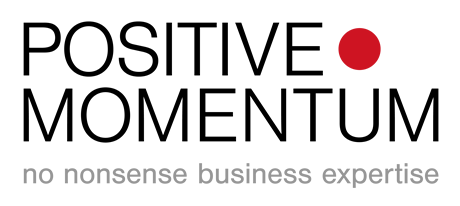It’s funny how those words ‘We look forward to seeing you at 9am on Monday’ suddenly start to bring a dawning realisation that all those clever things you said at interview are going to have to be backed up by some pretty quick learning, insightful thought and swift action. Gulp! When there is so much you don’t know, how do you wow your new boss, connect with your new team, impress your peers and generally prove that hiring you was a pretty sensible thing to have done? The good news is you have a brilliant advantage over everyone else. Not knowing very much at all will enable you to consider carefully, see clearly, crush complexity, identify issues, perfect processes and implement effectively. Even better news – it isn’t rocket science. In fact it’s very very simple. Here’s how:
Spend as little time as possible in your swanky new office Tempting though it may be to revel in your newly elevated status, once you’ve hung your pictures and lined up the family photos on the desk, get the hell out of there. No one ever delivered anything by sitting behind a desk. You need to roll your sleeves up and get your hands dirty – fast.
Assume nothing In a new role this is easy (pretty much the only thing that is, so hold onto this one). You genuinely don’t know enough about anything to make assumptions, which means you are naturally at your most open to learning and understanding. Assuming nothing is good. Sadly it’s a skill we all tend to discard far too easily, usually once we passed the 3-month mark and congratulate ourselves on having cracked it. For as long as you can, make no assumptions about anything.
Ask ‘stupid’ or as we call them ‘bloody good ‘questions They may sound stupid to you but they won’t to anyone else. When you ask ‘why do we do that?’ to be met with the answer (which is pretty typical) ‘Because we always have’ you know your stupid question is in fact a bloody good one.
Be constantly curious About everything. Make ‘why’ your favourite word of all time. And when someone answers your simple question with an overly complex answer, ask him or her to explain it really slowly and really carefully until you understand it. If they can’t, you can be sure they don’t understand it either!
Talk to everyone From CEO to most junior person in the office. Ask them all the technical stuff and all the not so technical stuff. Listen to what they have to say and make notes – chances are you’ll have good cause to refer back to those notes on a few occasions.
When you’ve talked to everyone, talk to your customers How does it feel to be a customer? What do they like and dislike? What do they really feel about doing business with you? Who do they see as your competition? What would it take for them to love you as opposed to just like you?
Understand the end-to-end process From your customers point of view. What does the business do and how does it work. What’s the sequence of events from the first conversation with a customer to delivering them the thing they have asked for? Walk the process, physically if you can. Experience it.
Go back to the floor Go do some of the jobs yourself. There is no better way for flushing out all the good, the bad and the ugly. It’s the quickest way to find out what ‘it’s really like around here’ and the best way to create some empathy with your team. You’ll come out knowing a whole lot more and the guys and girls on the floor will absolutely love you for it.
Don’t trust the data Any data that says everything is wonderful should be treated with suspicion. What is it actually measuring? If it truly is wonderful, everything you have already discovered in the 8 points above should also be telling you life is wonderful – your customers, your team, your processes, should all be leaving you with a rosy glow. If there is any disconnect, dig deeper – a lot deeper.
Listen to the ‘noise’ Noise will tell you something isn’t right long before the latest set of data hits your desk. Noise from your customers, your boss, your team, your shareholders, your internal stakeholders. Any noise needs listening to. There is usually a good reason for it. Noise may also occur when your data tells you it shouldn’t – funny how all those service levels are often exceeding expectations on paper but not in practice!
Immerse yourself In areas which are nothing to do with you. Why? Because see above, you’ll assume nothing (and be reminded how important this is) and maybe be able to help your colleagues a bit as well (given they will be happily making hundreds of assumptions if they have been in their role awhile). In time, be really brave and do a job swap. If you are in Sales, go and spend time in Operations. If you are in Finance go and spend time in HR. It doesn’t even have to be for long. You’ll benefit and your business will benefit.








